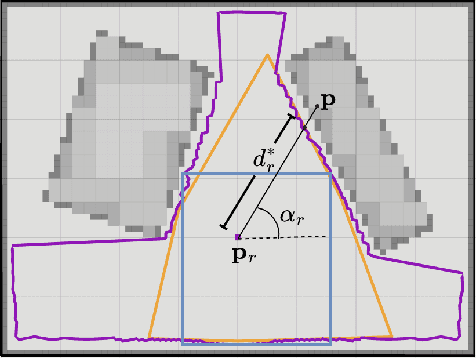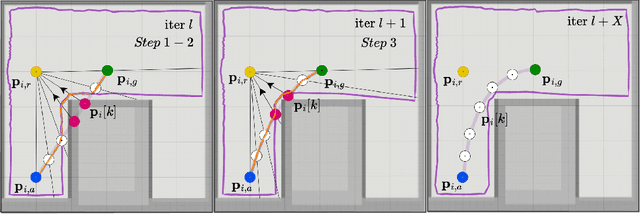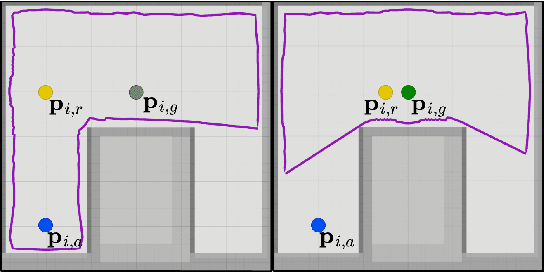AMSwarmX: Safe Swarm Coordination in CompleX Environments via Implicit Non-Convex Decomposition of the Obstacle-Free Space
Paper and Code
Oct 13, 2023



Quadrotor motion planning in complex environments leverage the concept of safe flight corridor (SFC) to facilitate static obstacle avoidance. Typically, SFCs are constructed through convex decomposition of the environment's free space into cuboids, convex polyhedra, or spheres. However, when dealing with a quadrotor swarm, such SFCs can be overly conservative, substantially limiting the available free space for quadrotors to coordinate. This paper presents an Alternating Minimization-based approach that does not require building a conservative free-space approximation. Instead, both static and dynamic collision constraints are treated in a unified manner. Dynamic collisions are handled based on shared position trajectories of the quadrotors. Static obstacle avoidance is coupled with distance queries from the Octomap, providing an implicit non-convex decomposition of free space. As a result, our approach is scalable to arbitrary complex environments. Through extensive comparisons in simulation, we demonstrate a $60\%$ improvement in success rate, an average $1.8\times$ reduction in mission completion time, and an average $23\times$ reduction in per-agent computation time compared to SFC-based approaches. We also experimentally validated our approach using a Crazyflie quadrotor swarm of up to 12 quadrotors in obstacle-rich environments. The code, supplementary materials, and videos are released for reference.
 Add to Chrome
Add to Chrome Add to Firefox
Add to Firefox Add to Edge
Add to Edge